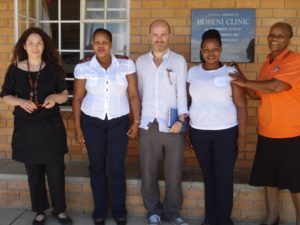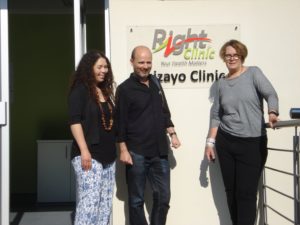I had recently the opportunity to talk with patients, nurses and doctors in low resource regions of South Africa about medical diagnosis. Together with Prof Janice Limson from the Biotechnology Innovation Centre at Rhodes University, South Africa we followed home visits by healthcare professionals and visited both rural and urban clinics and hospitals.
The Non-Governmental Organisation (NGO) Donald Woods Foundation facilitated the visits in Hobeni, located in a rural area in the Eastern Cape, known as the Transkei region. This is an area of great beauty but with extremely high unemployment; people live in dispersed huts and often have to walk up to 20 km to reach the nearest clinic.
In order to observe the differences between healthcare provision in rural and urban settings, the NGO Right to Care hosted visits to clinics and hospitals in Johannesburg, catering for large communities of both formal housing and informal settlements.
Although HIV and tuberculosis are still very high in the agenda, we could observe the need for a number of complementary low-cost rapid tests that could inform healthcare professionals on which therapy to follow.
Understanding what are the main issues in developing countries and see, first hand, which tests are made and how healthcare professionals and patients use current testing technologies is extremely important for researchers. End user engagement should be made at the start of research projects to ensure the outputs are relevant to the actual societal needs. Our main message is: "Don't beat about the bush, go to the bush!". That's the best way to understand the needs of end users.
Dr Pedro Estrela
Department of Electronic & Electrical Engineering, University of Bath
Respond


